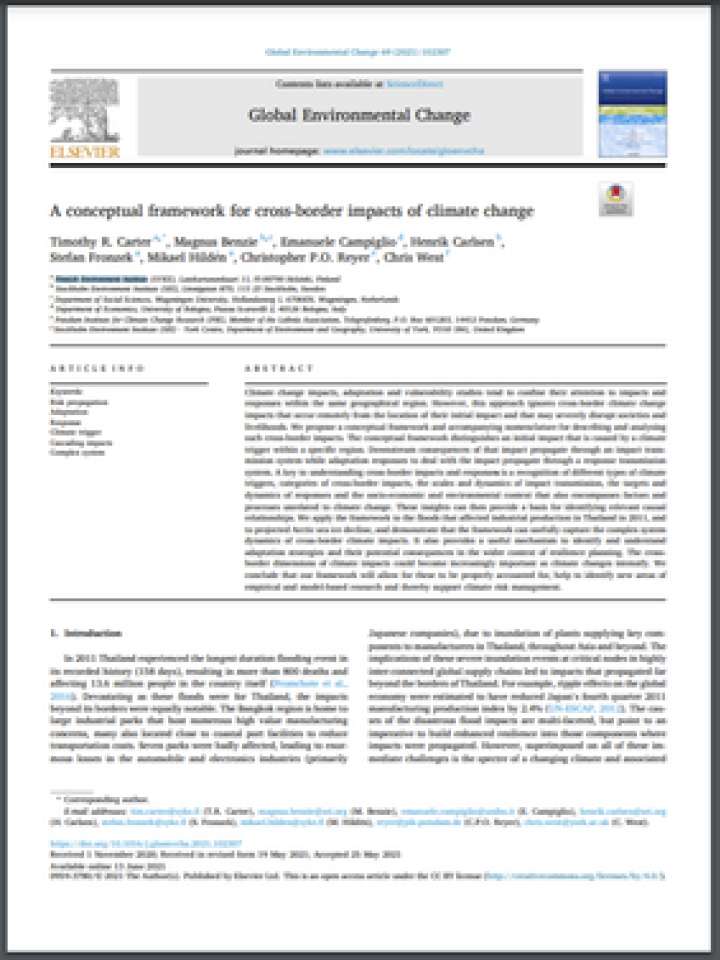A conceptual framework for cross-border impacts of climate change
This article proposes a conceptual framework for describing and analysing cross-border impacts of climate change. Climate change impacts, adaptation and vulnerability studies tend to confine their attention to impacts and responses within the same geographical region. However, this approach ignores cross-border climate change impacts that occur remotely from the location of their initial impact and that may severely disrupt societies and livelihoods. The authors propose a conceptual framework and accompanying nomenclature for describing and analysing such cross-border impacts.
The authors apply the framework to the floods that affected industrial production in Thailand in 2011, and to projected Arctic sea ice decline, and demonstrate that the framework can usefully capture the complex system dynamics of cross-border climate impacts. It also provides a useful mechanism to identify and understand adaptation strategies and their potential consequences in the wider context of resilience planning. The cross-border dimensions of climate impacts could become increasingly important as climate changes intensify. The authors conclude that our framework will allow for these to be properly accounted for, help to identify new areas of empirical and model-based research and thereby support climate risk management. Climate change impacts, adaptation and vulnerability studies tend to confine their attention to impacts and responses within the same geographical region. However, this approach ignores cross-border climate change impacts that occur remotely from the location of their initial impact and that may severely disrupt societies and livelihoods.
Explore further
